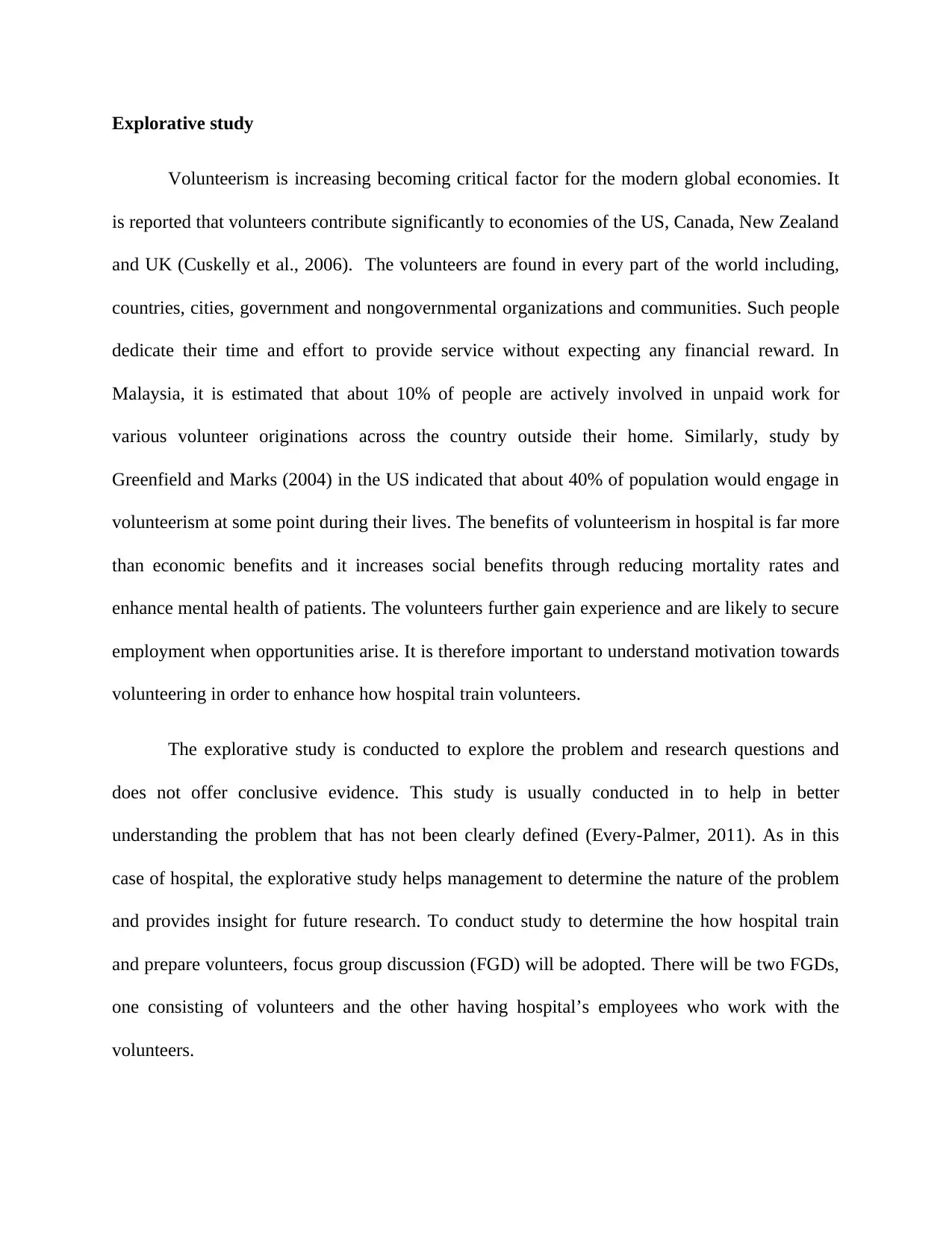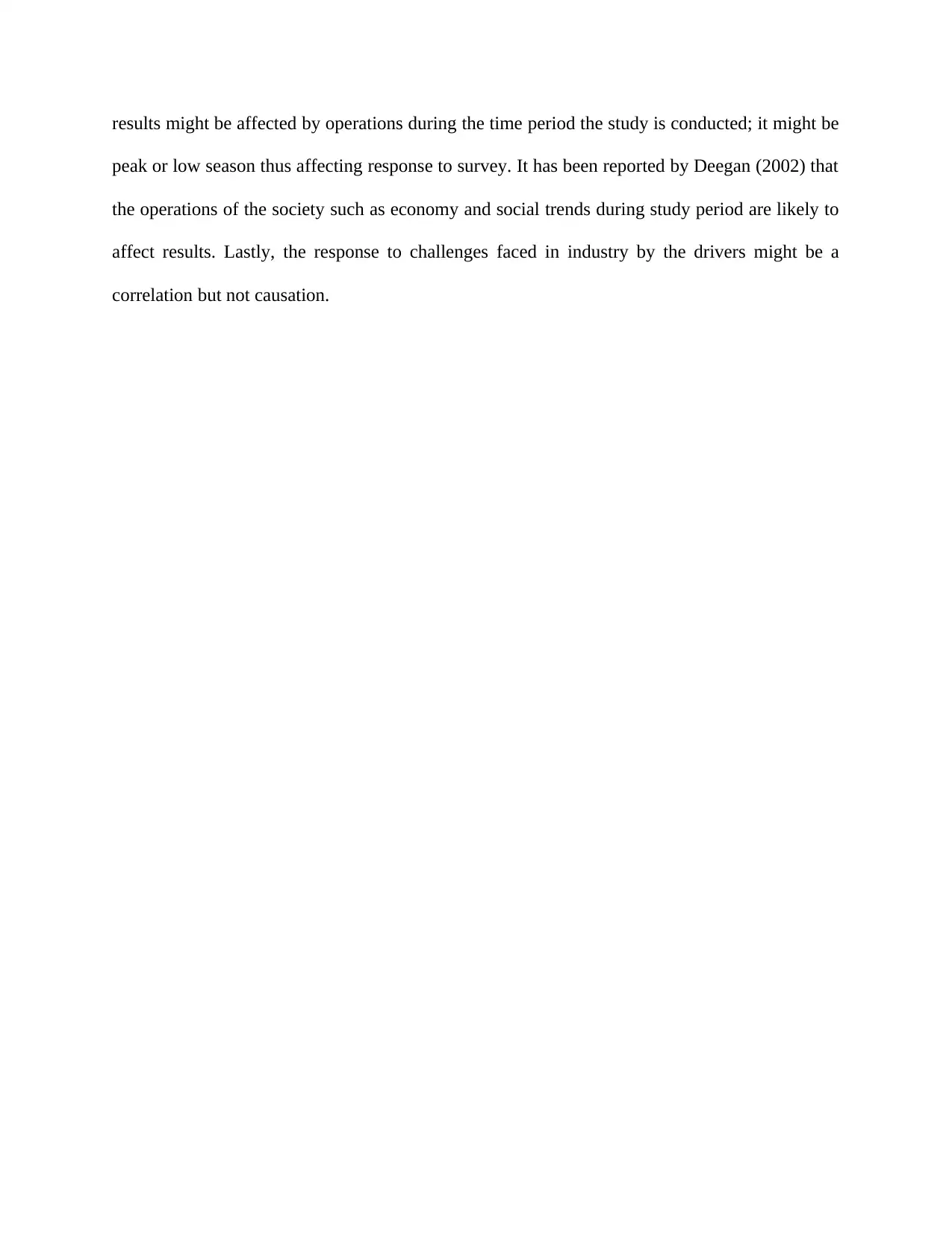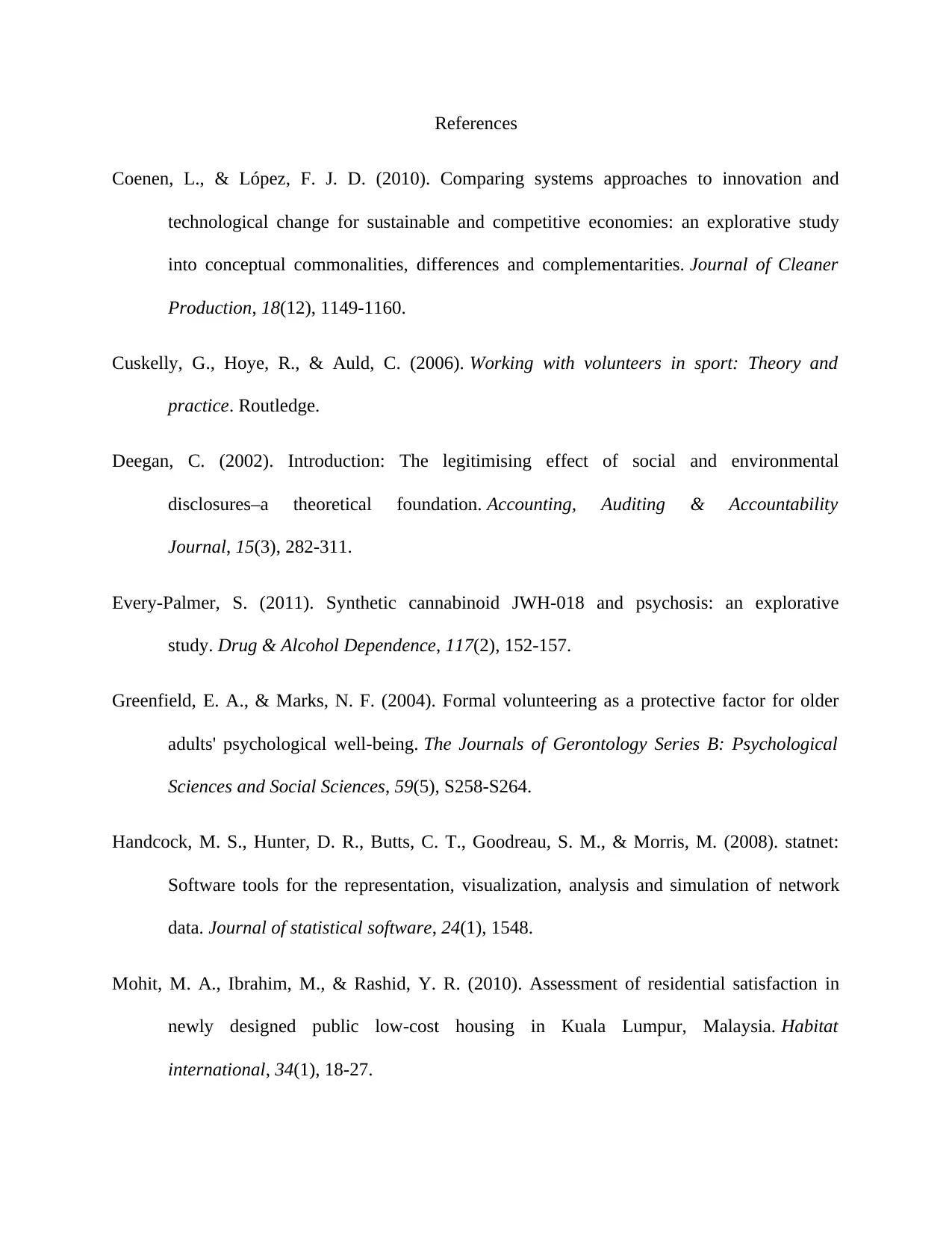Explorative Study Report: Volunteerism and Uber Driver Experiences
VerifiedAdded on 2021/06/18
|6
|1360
|93
Report
AI Summary
This report presents an explorative study focusing on two key areas: volunteerism in hospitals and the working conditions of Uber drivers in Kuala Lumpur. The volunteerism section investigates the motivations of volunteers in hospitals, utilizing focus group discussions (FGDs) with volunteers and hospital employees to understand their training experiences, career advancement, humanitarian values, and social aspects. The Uber driver section examines their working conditions, including income, safety, working hours, and labor relations, using a descriptive research design with questionnaires administered to 200 drivers. The study aims to understand the drivers' experiences and responses to challenges. The methodology includes questionnaire design, pilot studies, and data analysis using SPSS. The report also addresses the limitations of the study, such as challenges in obtaining a random sample and potential biases due to the study period. The report concludes by highlighting the correlational nature of the findings and the need for further research. The report offers valuable insights into the dynamics of volunteerism and the gig economy.

Explorative study
Volunteerism is increasing becoming critical factor for the modern global economies. It
is reported that volunteers contribute significantly to economies of the US, Canada, New Zealand
and UK (Cuskelly et al., 2006). The volunteers are found in every part of the world including,
countries, cities, government and nongovernmental organizations and communities. Such people
dedicate their time and effort to provide service without expecting any financial reward. In
Malaysia, it is estimated that about 10% of people are actively involved in unpaid work for
various volunteer originations across the country outside their home. Similarly, study by
Greenfield and Marks (2004) in the US indicated that about 40% of population would engage in
volunteerism at some point during their lives. The benefits of volunteerism in hospital is far more
than economic benefits and it increases social benefits through reducing mortality rates and
enhance mental health of patients. The volunteers further gain experience and are likely to secure
employment when opportunities arise. It is therefore important to understand motivation towards
volunteering in order to enhance how hospital train volunteers.
The explorative study is conducted to explore the problem and research questions and
does not offer conclusive evidence. This study is usually conducted in to help in better
understanding the problem that has not been clearly defined (Every-Palmer, 2011). As in this
case of hospital, the explorative study helps management to determine the nature of the problem
and provides insight for future research. To conduct study to determine the how hospital train
and prepare volunteers, focus group discussion (FGD) will be adopted. There will be two FGDs,
one consisting of volunteers and the other having hospital’s employees who work with the
volunteers.
Volunteerism is increasing becoming critical factor for the modern global economies. It
is reported that volunteers contribute significantly to economies of the US, Canada, New Zealand
and UK (Cuskelly et al., 2006). The volunteers are found in every part of the world including,
countries, cities, government and nongovernmental organizations and communities. Such people
dedicate their time and effort to provide service without expecting any financial reward. In
Malaysia, it is estimated that about 10% of people are actively involved in unpaid work for
various volunteer originations across the country outside their home. Similarly, study by
Greenfield and Marks (2004) in the US indicated that about 40% of population would engage in
volunteerism at some point during their lives. The benefits of volunteerism in hospital is far more
than economic benefits and it increases social benefits through reducing mortality rates and
enhance mental health of patients. The volunteers further gain experience and are likely to secure
employment when opportunities arise. It is therefore important to understand motivation towards
volunteering in order to enhance how hospital train volunteers.
The explorative study is conducted to explore the problem and research questions and
does not offer conclusive evidence. This study is usually conducted in to help in better
understanding the problem that has not been clearly defined (Every-Palmer, 2011). As in this
case of hospital, the explorative study helps management to determine the nature of the problem
and provides insight for future research. To conduct study to determine the how hospital train
and prepare volunteers, focus group discussion (FGD) will be adopted. There will be two FGDs,
one consisting of volunteers and the other having hospital’s employees who work with the
volunteers.
Paraphrase This Document
Need a fresh take? Get an instant paraphrase of this document with our AI Paraphraser

The research participants in the group will be guided by the moderator who is the
researcher. To ensure lively and effective discussions, the topics of interest will be discussed one
by one. The broad topics to be discussed relating to volunteerism training include career
advancement, humanitarian values, gaining understanding through skills, abilities and knowledge
gained during practice and finally the social aspect of engaging with others. The focus group
discussion will contain 10 members and will last for 2 hours. The information will be analyzed
by organizing information into broad themes. The study will provide volunteers’ perceptions of
training and their motivation to volunteer. FGD is chosen because a wider variety of perspectives
can be obtained within shorter period of time in relation to specific questions on subjects and
issues being researched (Coenen & López, 2010).
Case study of Uber drivers
Topic: The working conditions of Uber drivers in the Malaysian capital city, Kuala Lampur
Malaysia is one of the populous country in the world having population of over 30
million people. The Kuala Lampur is the largest city in the country hosting over 1.5 million
people (Mohit et al., 2010). There are numerous political, cultural and sporting events taking
place in the city thus favoring cab services. For this study, we will conduct study to investigate
the experiences of Uber drivers by specifically describing the working conditions in the city and
exploring how the drivers respond to such challenges. The research question will be, what are the
driver’s experience of working conditions? This question helps in evaluating the description of
working conditions in relation to income, safety, hours of work and labor relations.
Research methodology
researcher. To ensure lively and effective discussions, the topics of interest will be discussed one
by one. The broad topics to be discussed relating to volunteerism training include career
advancement, humanitarian values, gaining understanding through skills, abilities and knowledge
gained during practice and finally the social aspect of engaging with others. The focus group
discussion will contain 10 members and will last for 2 hours. The information will be analyzed
by organizing information into broad themes. The study will provide volunteers’ perceptions of
training and their motivation to volunteer. FGD is chosen because a wider variety of perspectives
can be obtained within shorter period of time in relation to specific questions on subjects and
issues being researched (Coenen & López, 2010).
Case study of Uber drivers
Topic: The working conditions of Uber drivers in the Malaysian capital city, Kuala Lampur
Malaysia is one of the populous country in the world having population of over 30
million people. The Kuala Lampur is the largest city in the country hosting over 1.5 million
people (Mohit et al., 2010). There are numerous political, cultural and sporting events taking
place in the city thus favoring cab services. For this study, we will conduct study to investigate
the experiences of Uber drivers by specifically describing the working conditions in the city and
exploring how the drivers respond to such challenges. The research question will be, what are the
driver’s experience of working conditions? This question helps in evaluating the description of
working conditions in relation to income, safety, hours of work and labor relations.
Research methodology

This study will use descriptive research design whereby the data will be gathered using
questionnaires. The population for this study will comprise a total of 200 Uber drives working in
the Kuala Lampur. The research participants will be sampled randomly based on their
availability. The questionnaire will first be developed to capture all components of the study and
revised by the supervisor. The primary data will be collected through questionnaires comprising
of two sections. The first section will comprise questions that target personal information like
gender, age, experience and income. The second section will comprise of close-ended questions
that allows respondents to rate constructs on a 5-point Likert scale. This section will be looking
on the objectives of the study that affect working conditions of Uber drivers. The questions will
be ranked on a scale where the response to statements will be strongly agree (1), agree (2),
neutral (3), disagree (4) and strongly disagree (5). The second part of questionnaire also
comprised of open ended questionnaires that allows respondents to provide general views and
perceptions. Pilot study will be conducted where questionnaires will be administered to 10
drivers who will not participate in actual study. The suggestions for improvement in pilot process
will help in final questionnaires that will be distributed physically to 200 Uber drivers. The data
gathered will be coded and analyzed using computer software called Statistical Package for
Social Science v. 24 (Handcock et al., 2008). The result will be presented in figures and tables.
One major challenge of the study is obtaining higher response rate of the returned questionnaires.
Limitations of the study
There are a number of potential weakness in this study particularly concerning
participants. There is difficulty of obtaining random sample of drivers to participate in the study
considering that they are not localized in one place. There is therefore a possibility that people
participating in the study might not truly be a random sample. Similarly, due to limited time my
questionnaires. The population for this study will comprise a total of 200 Uber drives working in
the Kuala Lampur. The research participants will be sampled randomly based on their
availability. The questionnaire will first be developed to capture all components of the study and
revised by the supervisor. The primary data will be collected through questionnaires comprising
of two sections. The first section will comprise questions that target personal information like
gender, age, experience and income. The second section will comprise of close-ended questions
that allows respondents to rate constructs on a 5-point Likert scale. This section will be looking
on the objectives of the study that affect working conditions of Uber drivers. The questions will
be ranked on a scale where the response to statements will be strongly agree (1), agree (2),
neutral (3), disagree (4) and strongly disagree (5). The second part of questionnaire also
comprised of open ended questionnaires that allows respondents to provide general views and
perceptions. Pilot study will be conducted where questionnaires will be administered to 10
drivers who will not participate in actual study. The suggestions for improvement in pilot process
will help in final questionnaires that will be distributed physically to 200 Uber drivers. The data
gathered will be coded and analyzed using computer software called Statistical Package for
Social Science v. 24 (Handcock et al., 2008). The result will be presented in figures and tables.
One major challenge of the study is obtaining higher response rate of the returned questionnaires.
Limitations of the study
There are a number of potential weakness in this study particularly concerning
participants. There is difficulty of obtaining random sample of drivers to participate in the study
considering that they are not localized in one place. There is therefore a possibility that people
participating in the study might not truly be a random sample. Similarly, due to limited time my
⊘ This is a preview!⊘
Do you want full access?
Subscribe today to unlock all pages.

Trusted by 1+ million students worldwide

results might be affected by operations during the time period the study is conducted; it might be
peak or low season thus affecting response to survey. It has been reported by Deegan (2002) that
the operations of the society such as economy and social trends during study period are likely to
affect results. Lastly, the response to challenges faced in industry by the drivers might be a
correlation but not causation.
peak or low season thus affecting response to survey. It has been reported by Deegan (2002) that
the operations of the society such as economy and social trends during study period are likely to
affect results. Lastly, the response to challenges faced in industry by the drivers might be a
correlation but not causation.
Paraphrase This Document
Need a fresh take? Get an instant paraphrase of this document with our AI Paraphraser

References
Coenen, L., & López, F. J. D. (2010). Comparing systems approaches to innovation and
technological change for sustainable and competitive economies: an explorative study
into conceptual commonalities, differences and complementarities. Journal of Cleaner
Production, 18(12), 1149-1160.
Cuskelly, G., Hoye, R., & Auld, C. (2006). Working with volunteers in sport: Theory and
practice. Routledge.
Deegan, C. (2002). Introduction: The legitimising effect of social and environmental
disclosures–a theoretical foundation. Accounting, Auditing & Accountability
Journal, 15(3), 282-311.
Every-Palmer, S. (2011). Synthetic cannabinoid JWH-018 and psychosis: an explorative
study. Drug & Alcohol Dependence, 117(2), 152-157.
Greenfield, E. A., & Marks, N. F. (2004). Formal volunteering as a protective factor for older
adults' psychological well-being. The Journals of Gerontology Series B: Psychological
Sciences and Social Sciences, 59(5), S258-S264.
Handcock, M. S., Hunter, D. R., Butts, C. T., Goodreau, S. M., & Morris, M. (2008). statnet:
Software tools for the representation, visualization, analysis and simulation of network
data. Journal of statistical software, 24(1), 1548.
Mohit, M. A., Ibrahim, M., & Rashid, Y. R. (2010). Assessment of residential satisfaction in
newly designed public low-cost housing in Kuala Lumpur, Malaysia. Habitat
international, 34(1), 18-27.
Coenen, L., & López, F. J. D. (2010). Comparing systems approaches to innovation and
technological change for sustainable and competitive economies: an explorative study
into conceptual commonalities, differences and complementarities. Journal of Cleaner
Production, 18(12), 1149-1160.
Cuskelly, G., Hoye, R., & Auld, C. (2006). Working with volunteers in sport: Theory and
practice. Routledge.
Deegan, C. (2002). Introduction: The legitimising effect of social and environmental
disclosures–a theoretical foundation. Accounting, Auditing & Accountability
Journal, 15(3), 282-311.
Every-Palmer, S. (2011). Synthetic cannabinoid JWH-018 and psychosis: an explorative
study. Drug & Alcohol Dependence, 117(2), 152-157.
Greenfield, E. A., & Marks, N. F. (2004). Formal volunteering as a protective factor for older
adults' psychological well-being. The Journals of Gerontology Series B: Psychological
Sciences and Social Sciences, 59(5), S258-S264.
Handcock, M. S., Hunter, D. R., Butts, C. T., Goodreau, S. M., & Morris, M. (2008). statnet:
Software tools for the representation, visualization, analysis and simulation of network
data. Journal of statistical software, 24(1), 1548.
Mohit, M. A., Ibrahim, M., & Rashid, Y. R. (2010). Assessment of residential satisfaction in
newly designed public low-cost housing in Kuala Lumpur, Malaysia. Habitat
international, 34(1), 18-27.

⊘ This is a preview!⊘
Do you want full access?
Subscribe today to unlock all pages.

Trusted by 1+ million students worldwide
1 out of 6
Your All-in-One AI-Powered Toolkit for Academic Success.
+13062052269
info@desklib.com
Available 24*7 on WhatsApp / Email
![[object Object]](/_next/static/media/star-bottom.7253800d.svg)
Unlock your academic potential
Copyright © 2020–2026 A2Z Services. All Rights Reserved. Developed and managed by ZUCOL.
